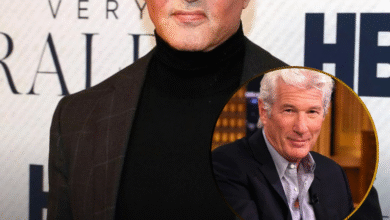Mary J. Blige’s “No More Drama”: An Anthem of Self-Liberation and a Turning Point in R&B
OPINION: This article may contain commentary which reflects the author's opinion.
In the landscape of early 2000s music, few songs delivered raw truth and emotional catharsis quite like Mary J. Blige’s “No More Drama.” Released as the title track from her fifth studio album on August 28, 2001, the single became more than just a chart success—it emerged as a powerful declaration of independence, self-respect, and hope for anyone wrestling with toxic relationships and personal demons.
A Song Born From Personal Struggle
For Blige, “No More Drama” was never just another hit. Drawing from her own turbulent experiences with abuse, addiction, and heartbreak, she channeled decades of pain into a track that called time on suffering. “Enough is enough of this nonsense. Enough of this self-abuse, people abuse, fake friends, the whole nine. Beat it!” she told Jet in 2001. Each lyric echoes her resolve to step away from cycles of pain—a message that struck a deep chord with millions seeking their own liberation.
Blige’s authenticity shone through in every performance. In a candid interview with The Daily Telegraph, she described reliving her past each time she sang the song: “I go through the emotion of being a child growing up in the projects… and every woman around you being beaten so badly by men you can’t even understand it, and then growing up and realizing you’re repeating all those patterns… I want to give people the real truth.” The song’s emotional weight came not just from Blige’s voice, but from the reality she survived—and overcame.
A Soundtrack for Empowerment
Produced by Jimmy Jam and Terry Lewis, “No More Drama” is laced with drama of its own, sampling the theme from The Young and the Restless and amplifying Blige’s commanding vocals. The song’s crescendo is nothing short of breathtaking—a visceral testament to letting go of the past.
Critics quickly recognized the track’s significance. The Guardian hailed it as “a visceral, cathartic howl of a song… its climax is breathtaking.” Vibe highlighted its inspiration, noting how Blige’s declaration of “no more drama” marked a pivotal point in her artistic evolution. Commercially, the single peaked at No. 15 on the Billboard Hot 100 and cracked the UK Top 10, earning Blige her first MTV Video Music Award for Best R&B Video.
A Lasting Legacy
But the impact of “No More Drama” goes far beyond sales or trophies. It became a cultural touchstone, championing Black women’s voices and lived experiences at a time when R&B and hip-hop were expanding their reach. The album and single were described by Albumism as “a spiritual breakthrough,” paving the way for Blige’s more uplifting, joyful music that followed.
Its legacy has only grown—performed on American Idol, The Voice, the 44th Grammy Awards, and even the Super Bowl LVI halftime show. The song has soundtracked pivotal moments in films like Honey and Why Did I Get Married?, and its DNA lives on in other artists’ work, notably Azealia Banks’ “Yung Rapunxel.” Released just before the September 11 attacks, “No More Drama” also became a soundtrack for healing and resilience during a fraught moment in American history.
The Real Truth
At its heart, “No More Drama” is more than a breakup anthem—it’s a battle cry for anyone reclaiming their peace. Mary J. Blige’s journey from pain to power is etched into every note, and with this song, she invites listeners to make the same declaration: no more drama, only freedom and hope ahead.



